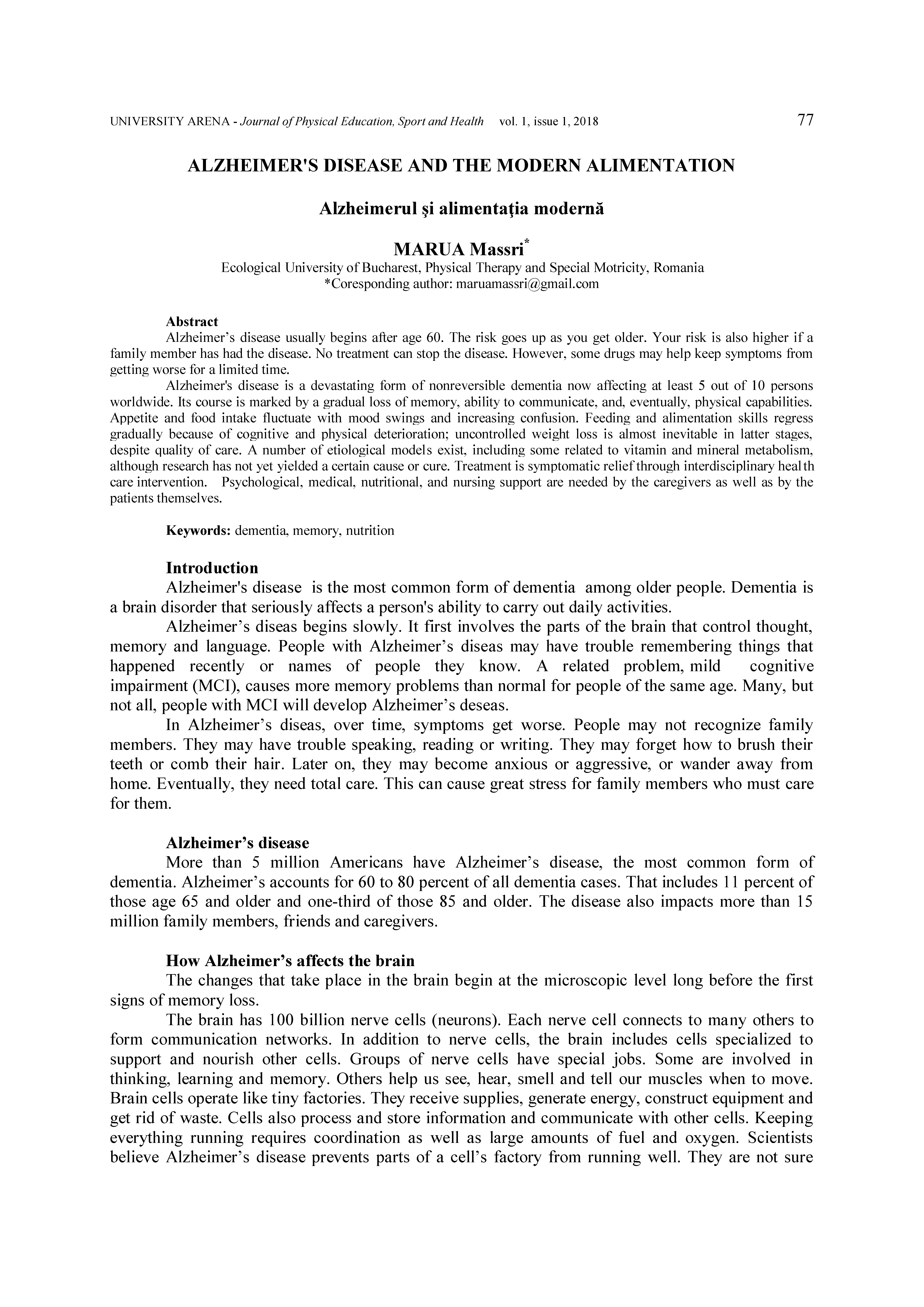ALZHEIMER'S DISEASE AND THE MODERN ALIMENTATION
DOI:
https://doi.org/10.62229/UaI_1_18-14Keywords:
dementia, memory, nutritionAbstract
Alzheimer’s disease usually begins after age 60. The risk goes up as you get older. Your risk is also higher if a family member has had the disease. No treatment can stop the disease. However, some drugs may help keep symptoms from getting worse for a limited time. Alzheimer's disease is a devastating form of nonreversible dementia now affecting at least 5 out of 10 persons worldwide. Its course is marked by a gradual loss of memory, ability to communicate, and, eventually, physical capabilities. Appetite and food intake fluctuate with mood swings and increasing confusion. Feeding and alimentation skills regress gradually because of cognitive and physical deterioration; uncontrolled weight loss is almost inevitable in latter stages, despite quality of care. A number of etiological models exist, including some related to vitamin and mineral metabolism, although research has not yet yielded a certain cause or cure. Treatment is symptomatic relief through interdisciplinary health care intervention. Psychological, medical, nutritional, and nursing support are needed by the caregivers as well as by the patients themselves.


